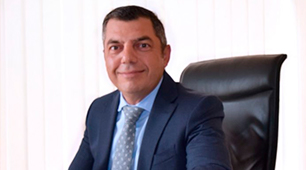Football training in Spain: traditions, schools, methods
The population of Spain is about 47 million people, of which about 1 million are professional football players. The game of ball, brought here in the second half of the XIX century by the British, over the years has become one of the most important components of the way of life of the entire nation. Even more - in an idea that unites people of different social strata, financial wealth, religion, gender, beliefs and age. It is not surprising that the Spaniards pay special attention to the education of new generations of football players.
The word "football" finally entered the Spanish language in 1916, with the Official approval of the Royal Academy. By that time, football in Spain was played not only by English immigrants, but also by local schoolchildren. It is said that Santiago Bernabeu, after whom the main stadium of Madrid will later be named, received his first ball lessons at the Augustine San Lorenzo College in Escorial, where he was sent by his parents to study law. Friendly matches with friends in between classes were, in his words, "the only way not to freeze in the yard." They also made a small contribution to the realization of his biggest and cherished dream - in 1909, at the age of 14, the future legend of Spanish football began playing for real Madrid, at that time in the youth team.
It is difficult to find out who in Spain had the idea to engage schoolchildren in football. Perhaps the children themselves infected adults with their passion, who, even as an elective, but still gave the go - ahead to include football in the educational program. One thing is clear — it was very successful. By instilling interest in this sport for generation after generation, the country has turned it into one of its main traditions, almost more popular than bullfighting and paella combined. Among other things, this is evidenced by the huge number of football clubs operating today in various Autonomous regions of the Kingdom. As of 2016, there are approximately 11,666 associations. It is no secret that many of them have both adult and children's teams under their command, where future Champions are brought up.
Spanish football schools with clubs are divided into Amateur and professional. The average age of children who come to enter the second type of school is 11-12 years. Since this is no longer a hobby, but a serious preparation for a big sport, the beginning of training is preceded by a strict selection system. In other words, only those who the coach sees as promising players have a chance to start training. This brings to mind the story of Iker Casillas. The little goalkeeper was brought to the real Madrid football school by his father, and at the age of 11, he went through all the children's categories,
it fell into the hands of Vicente Del Bosque, who was then working with aspiring footballers. However, they say that their acquaintance began with a strict reprimand — the boy bullied teammates.
How can you grow a professional player from such a full of energy, but still not able to do much? Using different methodologies, the best schools in Spain agree on one thing — pride in national football, which has absorbed the traditions and know-how of Germany, Brazil, the Netherlands and other leading football countries over the past 30 years. And here, of course, it is impossible not to turn to the experience of the Soviet coach Anatoly Tarasov with his method of team teamwork, adopted by the Germans, or the legendary football player and coach of the national team
The Netherlands, Ajax and Barcelona of Johan Cruyff, who taught Spain and the entire progressive football world the tactics of "total football", the essence of which is that players can change positions if it is justified by the situation on the field.
It is known that such interchangeability is possible only with a very high technical level of each team member, and that many schools in Spain differ in their approach to the development of football equipment. Some believe that technique is of paramount importance and separate it from the game, while others, on the contrary, introduce it into the training process on the field. Specialists of the Rusol Prime Futbol Barcelona Academy see the second approach as the most promising. Of course, it is necessary to work on the development of technology, but without fanaticism, because there is a risk of losing creativity, freedom of thought and turning into a robot that is perfect in dribbling, but completely helpless on the open field. Football is first of all a team sport, and you can only achieve results in it if you feel the breath of your rivals and friends next to you.


